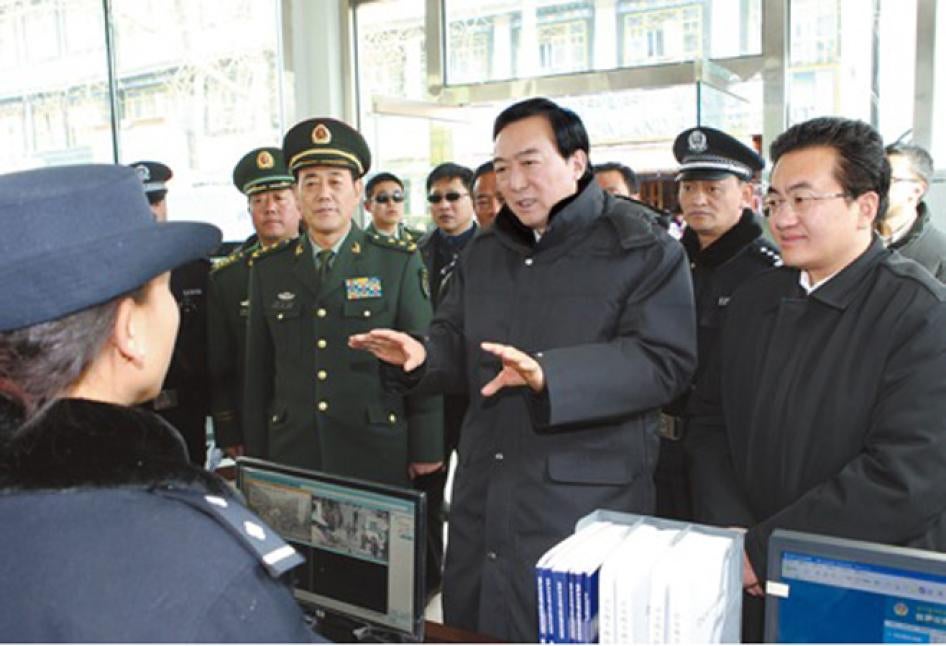It looks like China is exporting the same abusive policies it has been using in Tibet to Xinjiang, the ethnic Uyghur region. The government has long committed serious rights violations in both areas.
“In terms of national security,” Chinese President Xi Jinping said in 2014, “the approaches to Tibet and Xinjiang work are the same, and the objectives are also the same.”
The August 2016 shift of former Tibet Autonomous Region (TAR) party secretary Chen Quanguo to the Xinjiang Uyghur Autonomous Region as its new leader is one indication of that continuity. Top Xinjiang officials went to Lhasa, the TAR’s capital, in October to “strengthen mutual exchange, study and support, [and] to do a good job of achieving long-term stability in common.” Local media reported that the Xinjiang officials saw Tibet’s “achievements in nationality unity” as “impressive and inspiring.” On October 18, Chen’s replacement in Lhasa, Wu Yingjie, announced that, “There are many effective methods of stability maintenance developed from Xinjiang’s precious experience that should be studied and emulated.”
The “precious experience” consists of treating all forms of dissent as threats to the state, with a heavy security presence and extensive surveillance. In predominantly Muslim Xinjiang, authorities have for decades conflated expressions of Uyghur identity with separatism or terrorism; opposition to those policies has been expressed in peaceful protests but also through bombings and other violent attacks. Dissent in the majority Buddhist TAR has consisted of largely peaceful protests, and some self-immolations, about repressive and discriminatory policies. In both regions treating public criticism as criminal challenges to the state has fueled tensions and elicited no commitment from authorities to address underlying grievances.
What will Chen’s shift from Lhasa to Urumqi mean for people in Xinjiang? In October, Xinjiang authorities announced the “Becoming Family” program, similar to one during Chen’s tenure in Tibet, in which 110,000 officials must meet ordinary people every two weeks with a view toward “fostering ethnic harmony.”
That month, media also reported that officials had been sent to manage mosques in Hotan prefecture in Xinjiang, and are now establishing religious committees in residential areas, requiring local residents to report all religious activities; since 2011, authorities in Tibet have placed permanent teams of Communist Party officials in every religious institution to oversee daily management of religion.
Another of Chen’s flagship policies in Tibet entailed a major expansion of surveillance mechanisms, from high-tech police posts at urban road junctions to making a single person responsible for the behavior of every 5 to 10 households; it will not be difficult for him to justify similar initiatives across Xinjiang to his bosses in Beijing.
With Chen now tipped for elevation to the Politburo in 2018, fears are real that Tibet and Xinjiang will face more intrusive forms of surveillance and control.









